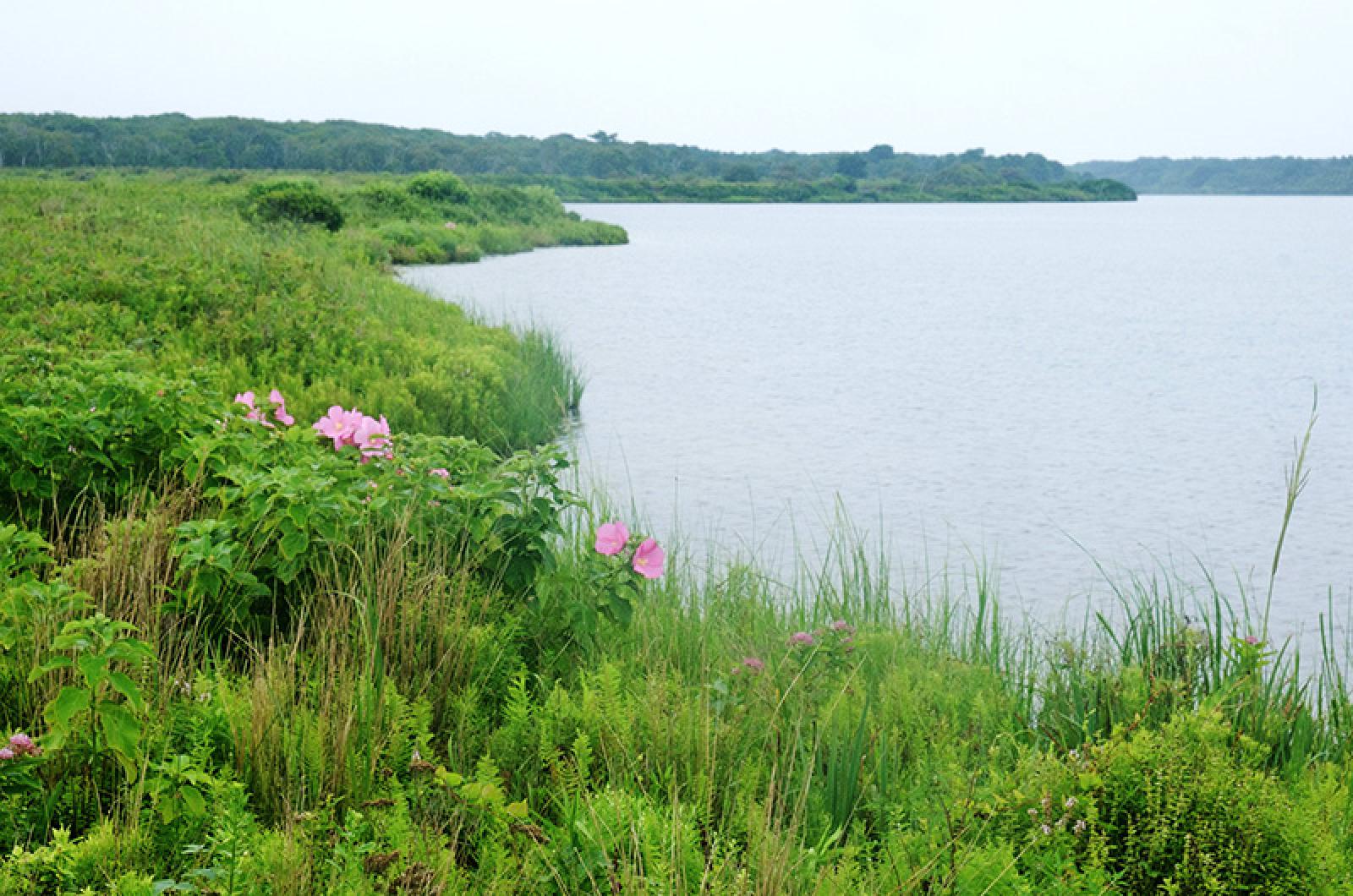Thousands of acres of sand lost to erosion. Hundreds of buildings at risk due to flooding. Salt marshes receding at record rates.
The second annual State of the Coast report released last week by The Trustees of Reservations paints a stark picture of the future for Martha’s Vineyard, Nantucket and Gosnold (the Elizabeth islands), as rising seas accelerate the natural processes on their sandy, rugged coastlines.

The 44-page report was formally released at an event last Wednesday held at Long Point Wildlife Refuge in West Tisbury, one of a number of Vineyard properties owned by the Trustees.
“Though this is a beautiful view, it’s a very precarious view,” said Jocelyn Forbush, acting president and CEO for the Trustees. Using information from the report, she said the Long Point coastline has an erosion rate of 6.4 feet per year.
The Trustees are the largest private coastal landowner in Massachusetts. The report is a compilation of publicly available data from various sources, including the Woods Hole Group and Martha’s Vineyard Commission. It was underwritten by ReMain Nantucket and Breckinridge Capital Advisors.
Using statistics, it illustrates how global warming has already affected the two Islands and will continue to do so. Since 1887, the Vineyard and Nantucket have lost a combined 3,295 acres in coastal areas to erosion, the report finds. By 2050, it predicts that up to 3,500 structures on the two Islands will be affected by storm flooding, up to 3,000 acres of coastline may be lost to erosion and roughly 900 structures may experience daily flooding. By 2070, it says Norton Point could be open ocean.
“But this is not a report about gloom and doom,” said Tom O’Shea, managing director of resources and planning for Trustees, at the event. “This is a report really about what can we practically do to make a difference, what are choices we can make today while we still have options.”
People attending the event were sheltered on a rain-soaked day beneath a tent located between Long Cove Pond and the Tisbury Great Pond. As speakers addressed the crowd, the roar of waves crashing on the beach served as an audible reminder of the topic at hand.
Each speaker underscored the urgent need to address the threats from climate change.
“If we collaborate and if we think outside the box and if we have the courage to have the uncomfortable conversations we need to have and to make the difficult decisions that need to be made, we can become a model for climate resilience,” said Liz Durkee, who recently took the job as the first climate change planner at the Martha’s Vineyard Commission. “I look at this as turning the challenges of climate change into opportunities to improve our quality of life.”
Lisa Berry Engler, director of the Massachusetts Office of Coastal Zone Management, said collaborative partnerships, as well as data, information and funding are key to preserving the state coastline.
“We must take action now to make our communities more resilient to climate impacts,” she said. “And that’s really what this report is about: providing a pathway and a plan and a framework for us to better invest these spending resources in the future.”
She described a plan by Gov. Charlie Baker to direct nearly $1 billion from the American Rescue Plan Act to critical energy and environmental initiatives, including $300 million for climate resilient infrastructure.
Jim Cantwell, Massachusetts director for U.S. Sen. Ed Markey, spoke about the political mechanisms addressing climate change both in the state and the country, including the Green New Deal and Civilian Climate Corps legislation.
At the end, Ms. Forbush urged all in attendance to spread the report’s message.
“Please read the report cover to cover and share with friends, family, neighbors and others,” she said.
On Monday. five days later, the Intergovernmental Panel on Climate Change issued its own landmark report that made headlines around the globe.






Comments
Comment policy »